Ngày 1/11, tại Trường Đại học Khoa học Xã hội và Nhân Văn, Đại học Quốc gia Hà Nội, Bộ Giáo dục và Đào tạo (GDĐT) tổ chức tọa đàm lấy ý kiến dự thảo Thông tư ban hành khung năng lực số cho người học trong hệ thống giáo dục quốc dân.
Tham dự tọa đàm có các đơn vị thuộc Bộ GDĐT, một số Sở GDĐT, hơn 80 cơ sở giáo dục đại học, chuyên gia và đại diện doanh nghiệp.
 |
Quang cảnh tọa đàm
Phát biểu tại tọa đàm, Vụ trưởng Vụ Giáo dục Đại học, Bộ GDĐT Nguyễn Thu Thủy cho rằng, khung năng lực số sẽ là một nền tảng, một khung rất căn bản để định hình những điều đang cần cho thế hệ tương lai của Việt Nam.
Khung năng lực số cho người học là một hệ thống mô tả các kỹ năng, kiến thức cần thiết để người học có thể sử dụng công nghệ số hiệu quả trong học tập, công việc, cuộc sống. Khung năng lực này giúp xác định các mức độ thành thạo về công nghệ số và khuyến khích phát triển các kỹ năng phù hợp trong bối cảnh số hóa.
Theo Vụ trưởng Nguyễn Thu Thủy, ý nghĩa của Khung năng lực số không chỉ dừng lại ở việc nâng cao chất lượng giáo dục mà còn mở ra cánh cửa cho sự đổi mới sáng tạo, giúp học sinh, sinh viên trở thành những công dân toàn cầu, có năng lực cạnh tranh trên thị trường lao động quốc tế. Đây cũng là cơ hội để thu hẹp khoảng cách số giữa các vùng miền, bảo đảm rằng mọi học sinh, sinh viên dù ở thành thị hay nông thôn đều có cơ hội tiếp cận và làm chủ công nghệ.
 |
Vụ trưởng Vụ Giáo dục Đại học Nguyễn Thu Thủy phát biểu tại tọa đàm
Bên cạnh đó, Khung năng lực số giúp định hướng cho giáo viên, giảng viên trong việc giảng dạy, bảo đảm rằng việc học tập của người học không chỉ đáp ứng nhu cầu của từng học sinh, từng gia đình, mà còn đáp ứng được yêu cầu của xã hội trong thời đại cách mạng công nghiệp 4.0.
Theo dự thảo Thông tư ban hành khung năng lực số cho người học trong hệ thống giáo dục quốc dân, đối tượng sử dụng của Khung năng lực số áp dụng cho người học trong hệ thống giáo dục quốc dân sử dụng cho các chương trình giáo dục, đào tạo, bồi dưỡng, các cơ sở đào tạo, các tổ chức đánh giá năng lực số, các cơ sở giáo dục.
Khung năng lực số được xây dựng đảm bảo 6 mục tiêu chính. Đó là, làm căn cứ thống nhất về yêu cầu năng lực số của người học trong hệ thống giáo dục quốc dân; là khung tham chiếu về tiêu chuẩn và hướng dẫn cho việc phát triển các năng lực số để các cơ sở giáo dục trong hệ thống giáo dục quốc dân xác định nội dung, phương thức giúp người học có được năng lực số phù hợp với từng cấp học, bậc học; giúp người học phát triển các kỹ năng cần thiết để sử dụng công nghệ một cách hiệu quả, sẵn sàng đối mặt với những thách thức và cơ hội trong thế giới số hóa và là nền tảng cho việc học tập suốt đời; bảo đảm tất cả người học đều có cơ hội tiếp cận và phát triển các năng lực số, góp phần giảm thiểu sự chênh lệch trong khả năng tiếp cận và sử dụng công nghệ; làm căn cứ xây dựng chương trình, biên soạn hoặc lựa chọn giáo trình, sách giáo khoa, kế hoạch giảng dạy, các tài liệu dạy học để nâng cao năng lực số khác và xây dựng tiêu chí trong kiểm tra, thi và đánh giá ở từng cấp học, trình độ đào tạo, đảm bảo sự liên thông giữa các cấp học và trình độ đào tạo; đảm bảo hệ thống giáo dục đáp ứng được nhu cầu của thời đại số, đồng thời giúp người học phát triển toàn diện, bền vững.
 |
Phó Vụ trưởng Vụ Giáo dục đại học Nguyễn Anh Dũng báo cáo tại tọa đàm
Phương án triển khai được đảm bảo đối với giáo dục đại học sẽ phát huy cơ chế tự chủ, xây dựng chuẩn đầu ra chương trình đào tạo trên cơ sở khung trình độ quốc gia, khung năng lực số, khung năng lực ngoại ngữ. Đối với giáo dục phổ thông và mầm non, hướng dẫn theo từng bậc học.
Khẳng định chuyển đổi số đang diễn ra ngày càng mạnh mẽ, đặc biệt công nghệ trí tuệ nhân tạo đang phát triển “chóng mặt” tác động đến mọi lĩnh vực của đời sống xã hội, GS.TS Hoàng Anh Tuấn, Hiệu trưởng Trường Đại học Khoa học Xã hội và Nhân Văn, Đại học Quốc gia Hà Nội cho rằng, Khung năng lực số cho người học sẽ đưa ra một bộ tiêu chuẩn hiệu quả, phù hợp, giúp nâng cao năng lực số cho người học ở tất cả các bậc học, góp phần vào việc phát triển nguồn nhân lực số toàn diện cho đất nước.
Theo GS.TS Hoàng Anh Tuấn, Trường Đại học Khoa học Xã hội và Nhân văn đã và đang nỗ lực tiên phong trong việc đưa các kỹ năng số vào trong chương trình giảng dạy và học tập. Trong thời gian qua, nhà trường đã triển khai thử nghiệm thành công các phương pháp và công cụ phát triển năng lực số cho sinh viên và giảng viên. Qua đó, thu được những kết quả tích cực trong việc cải thiện khả năng tiếp cận và sử dụng công nghệ thông tin của người học, cũng như thúc đẩy tư duy sáng tạo và tinh thần hợp tác trong môi trường số, trong bối cảnh hội nhập quốc tế và cuộc cách mạng công nghiệp 4.0.
 |
GS.TS Hoàng Anh Tuấn, Hiệu trưởng Trường Đại học Khoa học Xã hội và Nhân Văn, Đại học Quốc gia Hà Nội trao đổi tại tọa đàm
Ông Vũ Quốc Bằng, Phó Trưởng Ban Đào tạo, Đại học Quốc gia TP HCM cho biết, hiện tại Đại học Quốc gia TP HCM đang xây dựng khung năng lực số cho giảng viên trong hệ thống. Vì vậy, Thông tư là căn cứ rất quan trọng, phù hợp với những định hướng của trường, để dựa vào năng lực số của người học, xây dựng năng lực số cho các thầy cô, đáp ứng nhu cầu thực tiễn.
Theo ông Vũ Quốc Bằng, cần có hướng dẫn chi tiết sau khi ban hành thông tư để các đơn vị thực hiện hiệu quả; thống nhất, cụ thể từng đối tượng, trình độ trên toàn quốc; phương pháp tích hợp vào từng môn học như thế nào.
 |
 |
Đại biểu trao đổi tại tọa đàm
Đại diện Tổ chức giáo dục FPT đề xuất, cần cập nhật khung chi tiết, khuyến khích sự tự chủ của các cơ sở giáo dục đại học; có những chỉ số đo cụ thể hơn để dễ dàng trong triển khai; hướng dẫn cụ thể cho giáo viên nhà trường, lồng ghép các môn học, đánh giá; cần làm rõ hơn về đạo đức, minh bạch trong sử dụng trí tuệ nhân tạo AI…
Với nhiều ý kiến ghi nhận tại tọa đàm, ban soạn thảo, tổ biên tập sẽ tiếp thu, rà soát, cập nhật và hoàn thiện dự thảo Thông tư trong thời gian tới.
Nguồn: https://moet.gov.vn/tintuc/Pages/tin-tong-hop.aspx?ItemID=9972













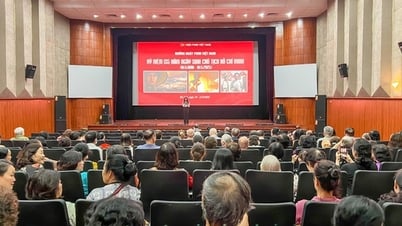





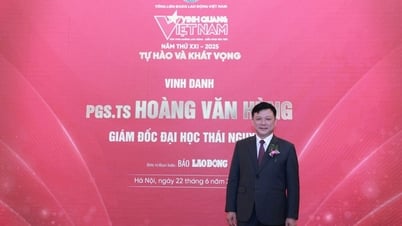
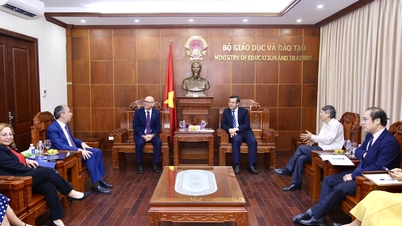
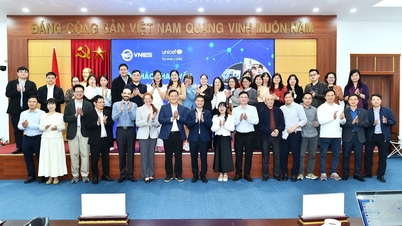
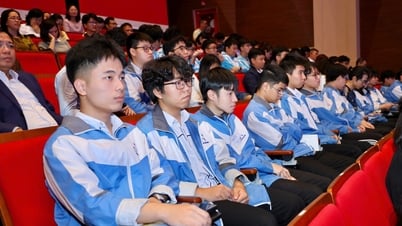















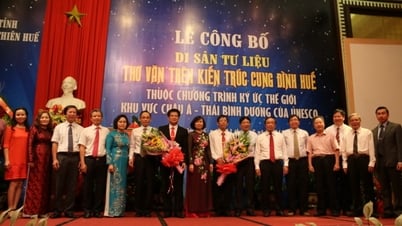












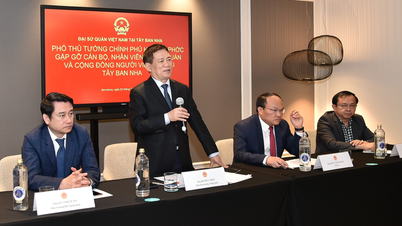



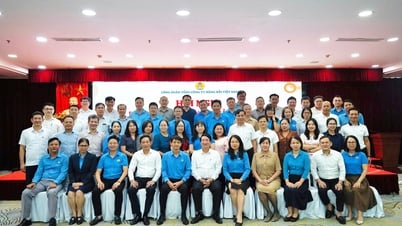
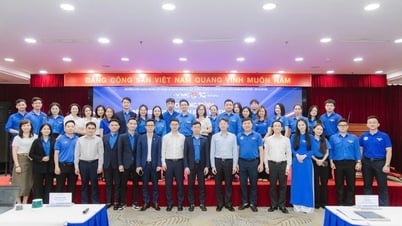

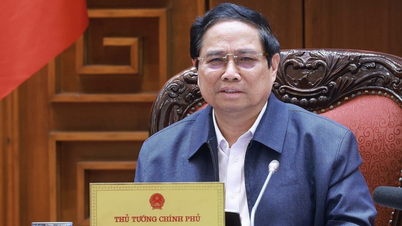














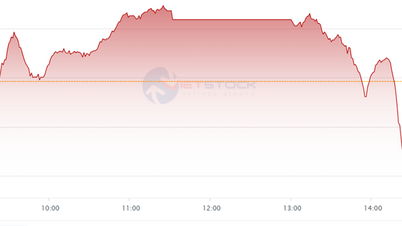


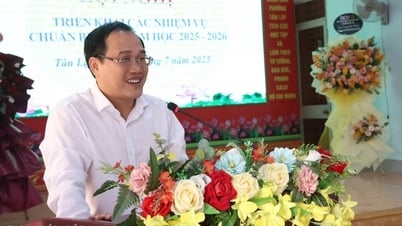

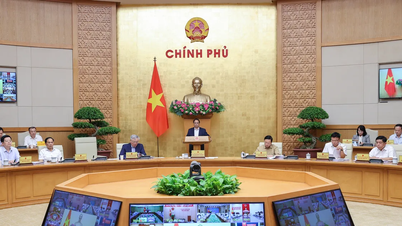

















Bình luận (0)